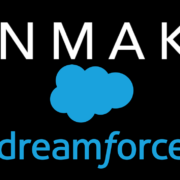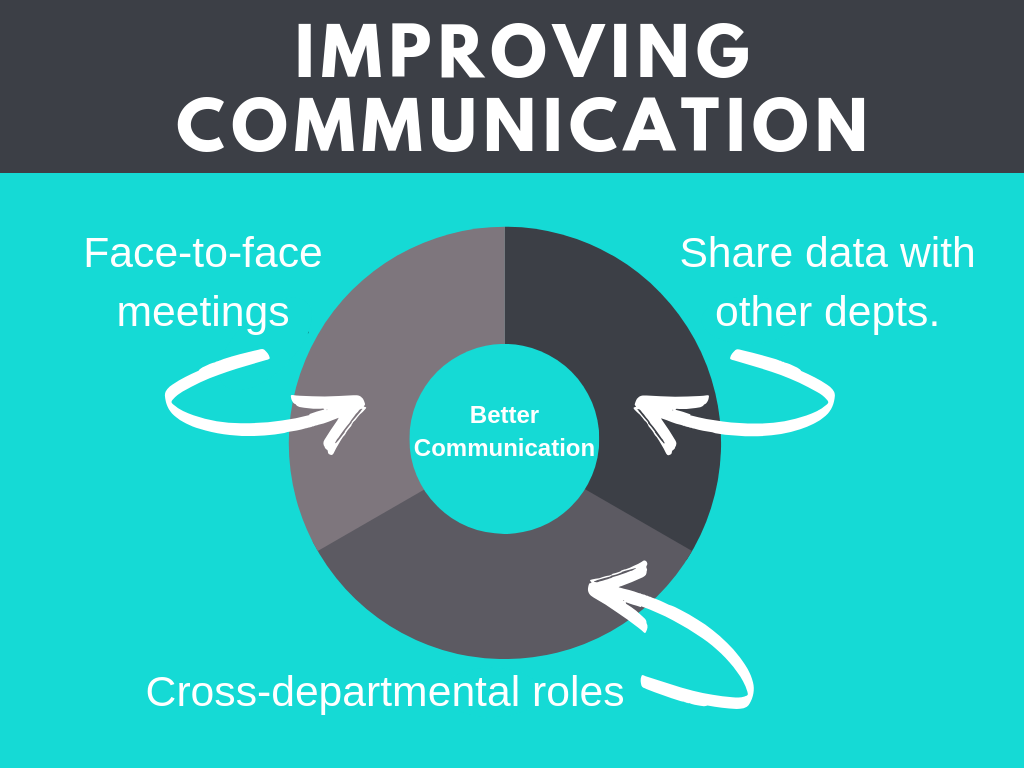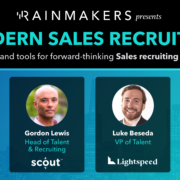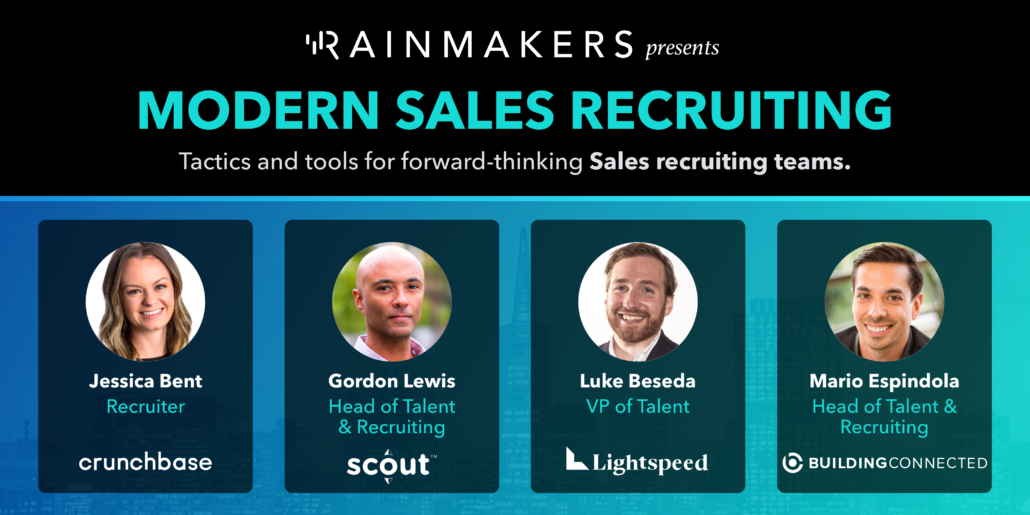———-This is a repost from my Sales Hiring article that was published in the Acceleprise blog————-
Now more than ever, business organizations need buyer-focused sales professionals who possess the character and the competencies to deliver high value to both the customers they serve and the companies they work for.
In a highly competitive talent market, the process of finding, hiring, and keeping these high-performing sellers can be quite challenging.
Sure, technology can help heat up your metrics, but it will only go so far. Talent is the only thing that can sell your brand at the end of the day and will determine the difference between sales organizations that are well-positioned to win the future and those that struggle just to survive the challenges of the present.
As customer centricity, account-based selling, and artificial intelligence redraw the contours of business, talent will become more crucial to keeping pipelines full, flowing, and fruitful. If your organization lacks the will to attract, recruit, and retain excellent sales professionals, then you are just exerting futile efforts at postponing failure to a later date.
After all, only sales professionals with the right skills and mindset can drive meaningful conversations with prospects and orchestrate the outcomes customers expect. Today’s consumers — especially in the B2B space — are empowered buyers looking for trustworthy consultants who can help them achieve success. They are not keen on taking cold calls from desperate sellers who primarily engage people just to make a sale and meet quotas.
Why is it so hard to find good sales reps?
Forward-looking enterprises often implement aggressive recruitment and retention strategies for top sales talent. These enterprises already deploy many excellent professionals on their sales floor. Given the emerging business realities, these highly competitive companies simply couldn’t afford not to.
For one thing, businesses improve profitability by as much as 30% when they hire top-notch candidates, according to a Gallup poll. In the B2B space, moreover, corporate clients have nearly unlimited access to information about alternative products, and virtually nothing prevents them from brand-hopping at will. If your sellers lack the skills at building effective solutions and at keeping these solutions relevant throughout the customer lifecycle, then closing deals and reducing customer churn will both be very difficult. Which, as you well know, leads to diluted revenue, profit margins, and morale.
Hiring anyone just to fill the vacuum wouldn’t do, either. In fact, poor hires cost a lot more in direct and collateral damage than not hiring in the first place. A bad hire causes your team to lose a substantial amount of time, money, and energy, with some estimates placing financial loss at hundreds of thousands to millions of dollars per year just for one bad hiring decision.
Meanwhile, the challenges of selling as a field also cause most people to shun sales as a career option, even compelling a significant number of practitioners to shift their line of work. Either effect further trims the number of competent sales professionals in the market.
Best channels to find good sales reps
If your organization plans to recruit the best sellers, there are a few places you would want to check out.
Start with your personal network
Your social and professional network covers your family and friends as well as acquaintances from grade school, the fitness club, and the workplace. Your network will likely include a number of competent sales practitioners, professionals who enjoy working with people, or individuals who are good at articulating value and convincing others to view things from a particular perspective. You can reach out to these people and probe whether some are open to working in a sales organization with you.
- Pros: Reconnecting with people you already know could be fun and won’t take as much effort.
- Cons: The process of identifying competent sales professionals or individuals with high potential in sales would be informal at best and largely dependent on your hunch/intuition. Overpromising on the benefits may also cause a strain in otherwise friendly relationships.
- Tips: Don’t overlook your alumni association from high school and college, as well as the business associations and social clubs you’ve joined in the past. Also consider sales professionals who have reached out to you regarding business matters. If they’ve managed to make you sign a subscription, perhaps they’ll be good at selling your product as well.
Ask for referrals and recommendations
If gleaning potential sales superstars from your network doesn’t work as planned, you can always request for referrals. Just like you, your friend or acquaintance knows somebody who works as a high-flying real estate agent or someone who has an uncanny ability at persuading people. Unless you have other options with higher odds of success, referred candidates would be worth checking out.
- Pros: Building new relationships is easier when you have common reference points: in these case, your mutual contact and your shared interest in selling.
- Cons: The competency or potential of the recommended individual depends on how the referrer defines what a “good seller” is.
- Tips: Remember to request for updated contact information and as much detail about the person as possible. Also, getting referrals from acquaintances who work as recruiters or sales leaders would be doubly valuable since you can assume these recommendations have been vetted more professionally.
Optimize events and meetups
Industry events such as seminars, trade shows, workshops, and conferences are premium opportunities for relationship building. They’re also great for sniffing out and assessing potential hires.
- Pros: Social events that relate to your industry help narrow the talent pool to those who are highly relevant to your business.
- Cons: Most attendees would already be connected to other companies and brands. However, the vast majority of them are also likely to be looking for better career opportunities, according to HubSpot.
- Tips: Tread lightly and be subtle. Limit yourself to building connections if your new prospect does not send positive signals that he or she is looking for a new employer. It’s not good to antagonize other industry players and be tagged as a “talent poacher.” Also, hang-out in places where executives and sellers usually go. There might be opportunities of discovering eager talent once in a while.
Squeeze LinkedIn dry
The planet’s largest professional network is perhaps the best place to build a shortlist of potential sales hires. The site’s powerful search functions can help you find qualified (but often presently employed) sellers in your particular market niche. You can also post job ads and reach thousands of professionals who meet your standards and qualifications.
- Pros: LinkedIn is purposely designed for businesses, professionals, and everything in between. It is a vast marketplace of ideas, products, and talent.
- Cons: Applying to job postings over LinkedIn is so easy your recruitment campaign might be swamped with applications too quickly for you to catch up and effectively select candidates who meet your requirements.
- Tips: Require additional information, a portfolio if appropriate, and a cover letter. These will help you get more pertinent information on top of what’s already available in candidates’ account profiles. Moreover, these will help you gauge whether a particular candidate is really interested in your posting (i.e., less interested candidates will not bother to submit additional requirements). Having said that, be wary also of desperate job hunters who’ll do anything to get an interview.
Explore other social media sites
If you need an entire brigade to fill your sales floor, then you can go beyond LinkedIn to other social media networks such as Facebook, Instagram, SnapChat, and Quora. Hundreds of millions of people visit these networks regularly to communicate their message and join conversations that matter to them.
- Pros: It’s free. You can start with your online social network and expand the search from there. There are also communities — especially on Instagram and Facebook — that could be very relevant to your business. Moreover, any sales candidate gleaned from these networks can arguably be considered “social media savvy,” a desired trait for new generations of sellers.
- Cons: There are a lot of noise on social media that will make your search hazy. You can easily get distracted and lose precious time navigating random distractions.
- Tips: You can use market research to target specific demographics you are envisioning for your salesforce. Millennials and younger workers, for example, tend to use Instagram and SnapChat more while highly knowledgeable and opinionated professionals follow conversations on Quora.
Conduct campus recruitment
Leverage the good relationships you’ve built at your alma mater. For open internships at your sales organization, your old campus may just be the hunting ground you need. Go beyond your college to other academic institutions in the area if you need to create a larger talent pool.
- Pros: College students and new grads are generally eager to enter the workplace. They are more flexible and trainable compared to candidates who have been in the job market for a while.
- Cons: It may take tons of training to get young talent truly prepared for the tough world of selling.
- Tips: Look for the right attitude, motivation, and behavior.
Traditional sales recruiters, headhunters, and job sites
Job sites such as Monster, Glassdoor, and Indeed.com provide the online interfaces that connect recruiters with job applicants. Like LinkedIn and specialist career marketplaces, job recruiting sites offer the best success rates for your staffing needs.
- Pros: You get straightforward recruiting services. You also gain insightful job market data such as median salaries for specific positions, industry, and locations.
- Cons: Getting the best results might entail costs. You will also be competing with similar recruiters targeting the same subset of applicants on the site.
- Tips: Streamline and clarify your job posting. Make it stand out from the posts of rival recruiters. Use site features such as Glassdoor’s employer reviews to gather worker sentiment and find professionals who might be “open” to trying out other employers.
Fine-tune your search via career marketplaces
Online career marketplaces such as Rainmakers attract the best employers and the top practitioners in a specific field. When these parties meet, excellence happens.
- Pros: Sales-oriented career marketplaces like Rainmakers already screen candidates for different sales roles and allow only highly competent practitioners to join its marketplace. Talent profiles are generally more in-depth than their accounts on LinkedIn, saving recruiters precious research time when hiring salespeople.
- Cons: Top-notch services usually come with a price tag.
- Tips: Use special features such as Rainmakers’ sales performance history to better assess a candidate’s credentials.
Online vs Offline?
Staffing your sales organization can take the offline or online route, or both. Depending on the situation, you can get the best of online and offline recruitment to benefit the final makeup of your sales team. So, make the best of in-person meet-ups during events and conferences. But don’t forget to put your best foot forward when hunting for talent online.
Some final tips and tactics
Sales recruitment is not only a challenging task, but one whose impact can create a powerful chain reaction far down the road. If you’ve hired the right people, then expect positive outcomes to pop up here and there. But if you enable bad candidates to come on board, the damage in terms of time, money, and morale can be devastating. Zappos CEO Tony Hsieh once claimed that bad hires cost the company $100 million.
So take sales recruitment seriously. Hire specifically for the task you need done but never discount character and motivation. Technical skills should always go hand-on-hand with attitude. For experienced roles, consider the candidate’s professional selling history, relevant training, and certifications.
Don’t settle for less. Do your homework as a diligent recruiter and the rest will follow. Remember, nothing else can move your business further than highly motivated talent.



















